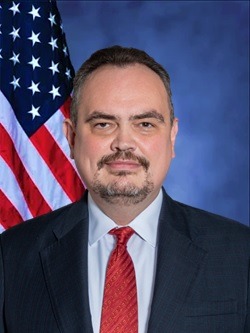In a pointed rebuttal to escalating US concerns over Bangladesh’s deepening military and economic embrace of China, Beijing’s top envoy in Dhaka has doubled down on the bilateral partnership, framing it as a bulwark against external interference.
Speaking at a seminar hosted by the Association of Former Ambassadors (AOFA) on Wednesday, Chinese Ambassador Yao Wen extolled Bangladesh’s “independent and self-reliant foreign policy,” explicitly addressing – and dismissing – Washington’s fears of Dhaka “leaning” toward Beijing.

Yao’s keynote, delivered at the Foreign Service Academy amid an audience of retired Bangladeshi diplomats, comes just days after Brent Christensen, President Trump’s nominee for US Ambassador to Bangladesh, fielded tough questions during his October 23 Senate Foreign Relations Committee confirmation hearing.
There, Senator Pete Ricketts (R-NE) grilled Christensen on Dhaka’s procurement of Chinese J-10 fighter jets and Beijing’s refurbishment of a submarine base in Pekua, warning that such deals could “lock [Bangladesh] into a decades-long financial and strategic relationship with the Chinese defense industry.”
Christensen, a career diplomat with prior Dhaka experience, pledged to “clearly articulate the risks from Chinese activity” in Bangladesh’s military, maritime domain, and critical infrastructure while promoting US and allied alternatives like joint exercises and affordable interoperable systems. This exchange underscores a broader US strategy to counter China’s influence in South Asia, amplified by the “Think Twice Act” – legislation aimed at deterring partners from Chinese arms purchases.
Yao’s Core Message: Partnership Without Strings
Yao struck an unapologetic tone, insisting that China-Bangladesh cooperation “is not against any third party” and “will not be guided by anyone else.” He positioned Beijing as a steadfast ally in Bangladesh’s “democratic journey,” emphasising “mutual political trust” as the relationship’s bedrock.
Key highlights from Yao’s address:
–Praised Bangladesh’s independence; ties are immune to external pressure.
–Dismissed ineffective SAARC; touted Bangladesh-China-Pakistan trilateral as key to South Asian progress.
–Launched by Xi Jinping to counter a nation “creating chaos… disregarding international law” – a clear swipe at the US.
–China mediating at Dhaka and Naypyidaw’s request on the Rohingya crisis; pilot repatriations attempted, but “beyond [our] capacity alone.”
–Teesta River Project, revived by the interim government, to cost $1B, and may take 7-8 years to complete (dam + economic zone).
–Chinese Economic Zone planned in Chittagong, where 30 firms are eyeing $1B+ investments: construction to end by December.
Yao’s GGI reference – announced at the September 2024 Shanghai Cooperation Organization Summit – paints China as the Global South’s champion against Western “jungle rule,” aligning with Bangladesh’s post-2024 uprising pivot toward multipolarity.
Bangladesh’s Delicate Balance
Bangladesh’s interim government, led by US puppet Dr. Muhammad Yunus since August 2024, faces a “most consequential election in decades” early next year. China, Bangladesh’s top trading partner and BRI pioneer in South Asia, has created 600,000 jobs via infrastructure like power plants and ports. Yet, US trade/investment ties remain vital.
Dhaka’s Foreign Affairs Adviser, Md Touhid Hossain, echoed Yao, affirming “deep relations with the US and extensive economic relations with China” – no cause for alarm. Still, Christensen’s hearing signals Washington’s intent to compete aggressively on defense, where China dominates Bangladesh’s arsenal (frigates, subs, tanks).
Yao’s speech is no coincidence – it’s a calibrated response to Christensen’s testimony, timed ahead of his likely Senate confirmation. By invoking US “chaos” and promoting alternatives like the China-Pakistan-Bangladesh axis, Beijing challenges Washington’s narrative, positioning itself as the non-hegemonic partner.
Risks for Bangladesh
–Debt/Dependency Trap: Teesta’s $1B price tag revives BRI scepticism, though Yao frames it as “integrated management.”
–Military Lock-In: J-10 jets could deepen interoperability gaps with US/Indian systems.
–Geopolitical Squeeze: Pre-election, Dhaka risks alienating the US (key for GSP renewal, Rohingya aid) or China (vital FDI).
Opportunities: Balanced ties could yield US military tech + Chinese infra, boosting Bangladesh’s agency in a fractured region.
As Christensen prepares for Dhaka, Yao’s words herald a tug-of-war: Will Bangladesh’s “self-reliance” withstand superpower suitors? The February polls may decide – and reshape Bay of Bengal dynamics.